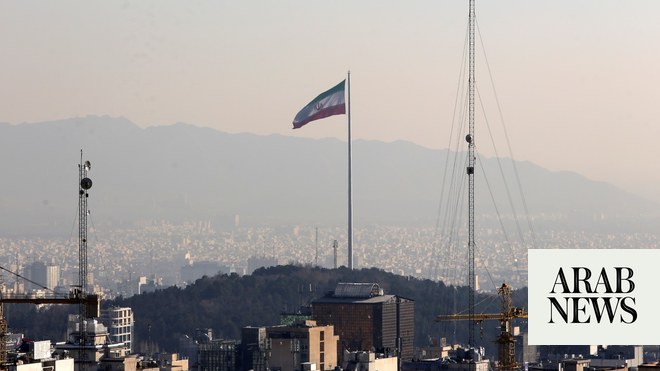
Iran has asked Oman to transmit to Washington a set of new proposals designed to prevent a showdown with the Trump administration over the controversial nuclear deal reached with six major powers, sources in Tehran confirmed yesterday.
Known as the Comprehensive Plan for Joint Action (CJPOA), the deal envisages the temporary lifting of some sanctions against Iran in exchange a freezing of aspects of the Iranian nuclear program.
The Iranian demand was put to the Omanis by Islamic Republic Foreign Minister Mohammed Javad Zarif, during a “working visit” to Oman for talks with his Omani counterpart Youssef bin Alawi bin Abdullah.
President Donald Trump claims that Iran has violated the spirit of the deal and is reportedly planning to refer the whole issue back to the US Congress, effectively ending the periodic suspension of sanctions against Iran. Trump has three objections to the deal, all of which are expected to be addressed in the compromise formula Zarif has taken to Muscat.
The first of these is that the CJPOA includes “sunset clauses” that envisage the ending of all sanctions on Iran in periods of between 10 to 30 years. In the new Iranian formula, a mechanism will be agreed to end the “sunset” concept and link the full lifting of sanctions to certified performance by Iran.
Trump’s second objections is that Tehran has refused to ratify the Additional Protocols to the Nuclear Non-proliferation Treaty (NPT), thus keeping all options open for a full resumption of the military aspects of its nuclear project. What Zarif is offering now is to fast-track the arousal of the additional protocols through the Islamic Majlis, the Iranian parliament, before March 2018 when Iran and the 5+1 foreign ministers are due to hold a “revision conference” to assess mutual performance.
The third American objection is that Iran has tried to exclude its missile development project from the deal, thus ignoring resolutions passed by the United Nations’ Security Council. The compromise formula now suggested by Iran would provide for arbitration on the issue, allowing Iran to continue its project but offering guarantees that missiles thus developed would not be designed to carry nuclear warheads.
Before flying to Muscat, Zarif said that if the US wants “stringent inspection” of Iranian nuclear sites to continue, it must continue to abide by the terms of the CJPOA. The Islamic foreign minister also said the US “could be sure Iran would ratify the Additional Protocols.”
As an additional “sweetener,” Zarif renewed Iran’s offer of cooperation in the fight against ISIS and suggested that Iran’s regional policies be separated from the nuclear issue.
In a separate interview, Zarif said that despite Iran’s flexibility, chances of the US remaining committed to the CJPOA was “50-50”, adding that Tehran already had contingency plans to deal with any outcome.
Trump must notify the US Congress by October 15, leaving a narrow window of opportunity for any mediation by the Omanis.
Zarif, who will also visit Qatar after Oman, is using his mini-tour to put other “possibilities”, related to relations with neighboring countries, on the table.
Iran and Oman have already signed a security accord and demarcated their continental shelf in the Gulf of Oman. Oman has also offered “mooring rights” to the Iranian Navy, enabling it to expand its active presence right down to the Gulf of Hauf and the Gulf of Aden. Tehran now wants the accord “deepened” to include joint operations against terrorist threats, piracy and human-trafficking in the region. The establishment of a daily direct shipping line between the Iranian port of Chahbahar and the Omani capital Muscat is expected to facilitate security and trade cooperation.
According to sources in Tehran, in Qatar Zarif is expected to propose the creation of “joint organs” in a number of domains including environmental protection, and combating drug trafficking and smuggling in general. Iran and Qatar already have a security cooperation accord that could be expanded to cover other areas of mutual interest and, later, also joined by Oman. One area of concern is the rapid depletion of fishing resources in the Gulf where many foreign nations, notably China, are “plundering” fish resources with no regard for regeneration of stocks. Iranian fishermen have been engaged in a series of protests and strikes, calling on Tehran to curb unrestricted Chinese fishing activities. Tehran claims that effective action would not be possible without the cooperation of other littoral states; Oman and Qatar are expected to be the first to agree to joint action with Iran.
Both Zarif and President Hassan Rouhani have gone out of their way in recent weeks to describe an easing of tension with Gulf neighbors as a “top priority”. As always with the Islamic Republic, however, it is not clear whether their stance is endorsed by the “Supreme Guide” Ayatollah Ali Khamenei, who has the final word on all issues or, whether as often in the past, they are asked just to buy time.
One calculation in Tehran may be based on the assumption that if they manage to keep the US committed to the CJPOA until next March, the Trump administration would then find itself too involved in the mid-term US elections to open a new front in foreign policy. Tehran also hopes that the Democrats, still committed to President Barack Obama’s legacy, would regain control of the US Senate, making it harder for Trump to pick up a fight with Tehran.












